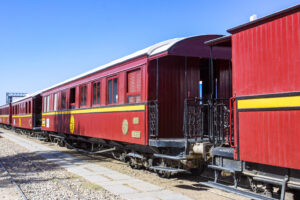
The Lézard Rouge, Tunisia
A wonderful old train journey through spectacular gorges and desert scenery in the luxury of a train that once belonged to the Bey of Tunis.
It was an early start leaving our Trapani (Sicily) hotel at 6.30am to be at the dock by 7am. The ferry had already docked when we arrived, coming down from Sardinia, and the semi-trailers were rolling off.
The ferry looked more like an oil tanker with a high rear superstructure and a flat forward deck. Stern-in to the wharf, there were two gaping entrances – one ramped up to the deck in front of the rear superstructure and the other leading down to the bowels of the ship. No wasted cargo space on this boat.
We joined what was a sort of a line in front of the ticket office and eventually got to the window. A ticket for two, no car, open return. No problems.
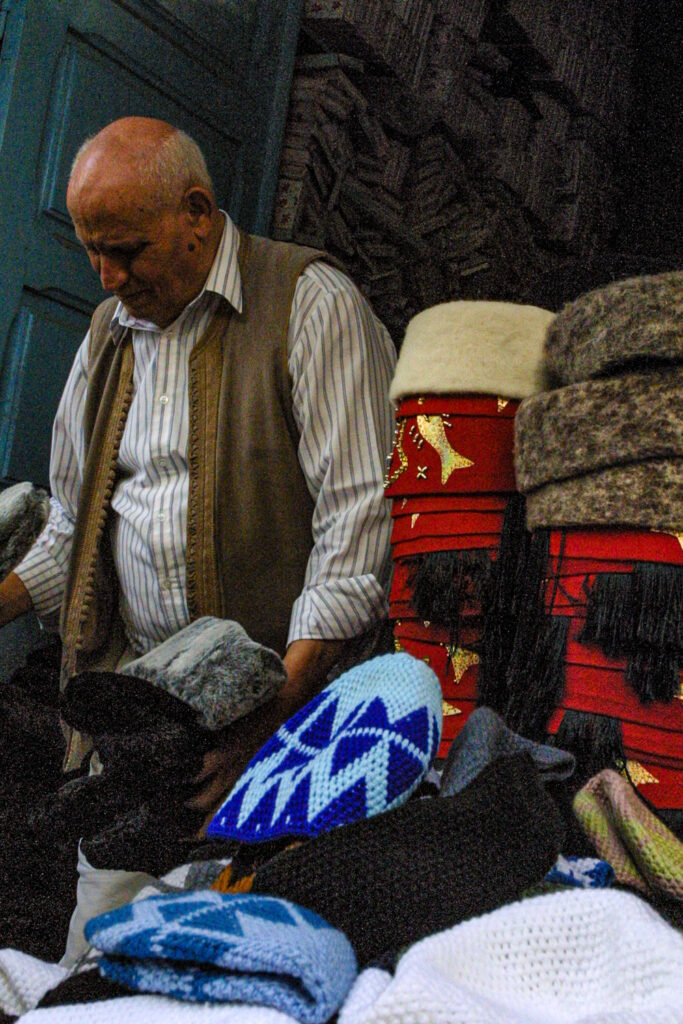
Then around to the customs window and we hand in our passports for our exit stamp. We gather through sign language that we just leave our passports and come back in 30 minutes. With nothing much else to do we hang round the window with the rest of the crowd. Did I here my name called out? I’m not sure. But then “Australia!” and everyone points to us – is it that obvious that we are the only Australians making this trip?
We then sit on the wharf to await boarding time. Nothing seems to be happening – the ship has been unloaded and people and cars and trucks wait expectantly but the police and officials are just standing around. But soon the movement starts and we get our bags on board and up to the saloon. We are one of the first on board and we stake our claim to a comfortable couch for the eight-hour trip. The ferry is due to leave at 10am and finally starts to move half an hour late.
.
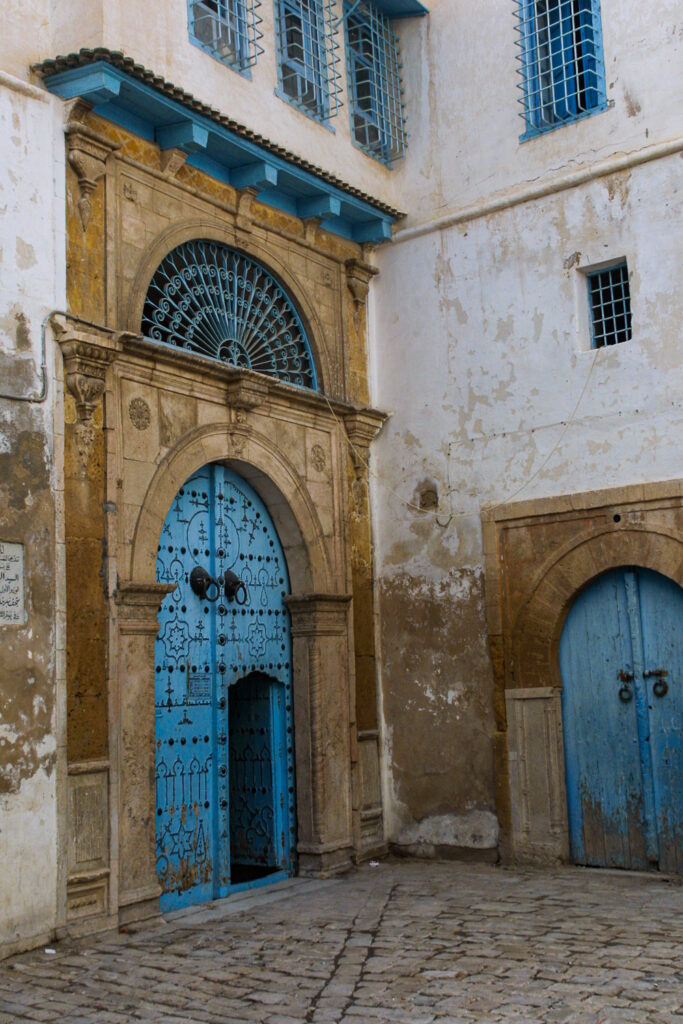
We are joined nearby by a couple of Italians – agricultural specialists who live in Marsala and regularly make the Tunisian trip to supervise projects – and an expat American (Bill) who has been living in Israel and is going to Tunisia for a holiday. He tells us that he had to go to Egypt to get a new USA passport for this trip (we had also been told that you can’t enter Tunisia with evidence that you have been in Israel but we didn’t tell Bill that we were also sporting new passports) Bill’s son works in tourism in Israel – but now there is no work.
Jen’s Italian expertise enables us strike up a limited dialogue with the agricultural specialists. We tell them that we have been to their home town of Marsala and that it is a beautiful city. They are brothers and the photos come out of a recent 1st birthday party and we are introduced to all their families.
Around us is a mix of Tunisians and Italians, mostly men, the Tunisians returning home after working in Europe for the summer.
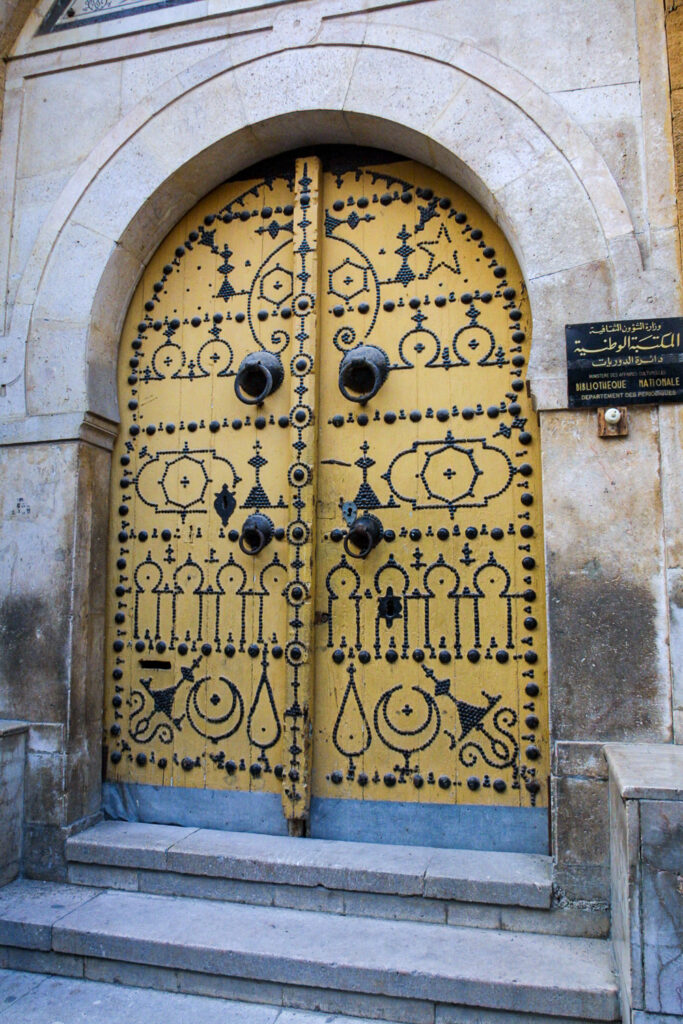
At last the coast of Tunisia is visible in the darkness and we drag our bags down to the vehicle deck ready to disembark. The ramp drops down and we head up to the customs hall and get in line. “No visa?” “No, we were told we could get one here”, we are taken off to another area to get our visa stamp and pay our visa fee.
Then back up to the customs hall and we have our bags inspected. I declare my camera, lenses and laptop and fill in a form that is in French/Arabic so I am only guessing at some of the responses. The various serial numbers are recorded on the back page of my passport and I am told that I must take the camera and laptop back out of the country when I leave. Jen quips that I would leave her behind before I would leave the camera so that seems to satisfy the customs officer and he sends us off to get the form stamped and we are through the door and in Tunisia.
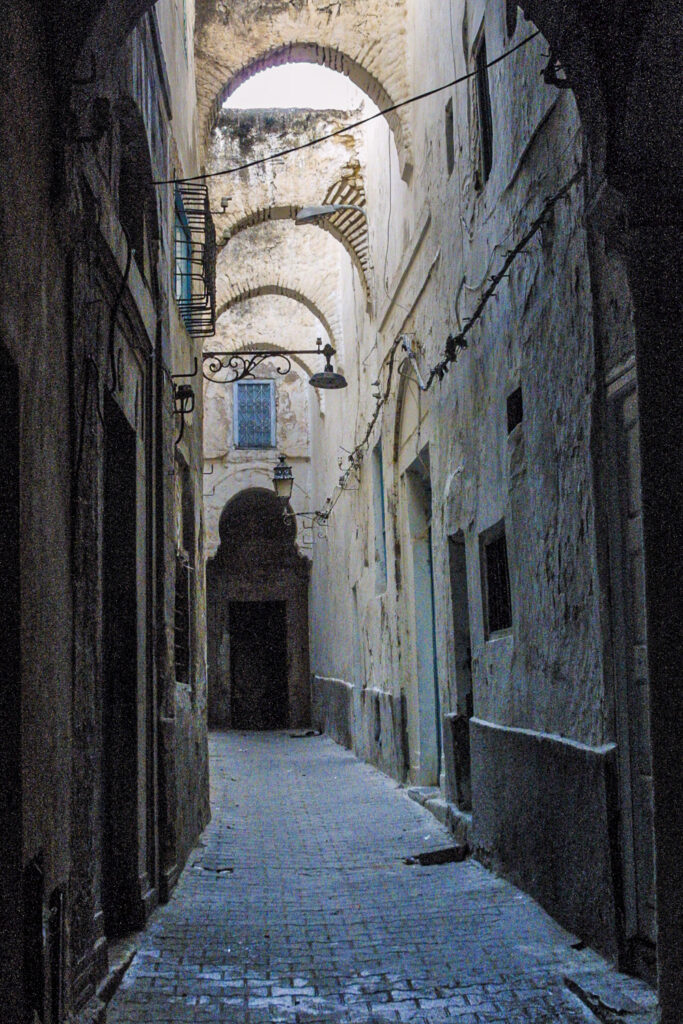
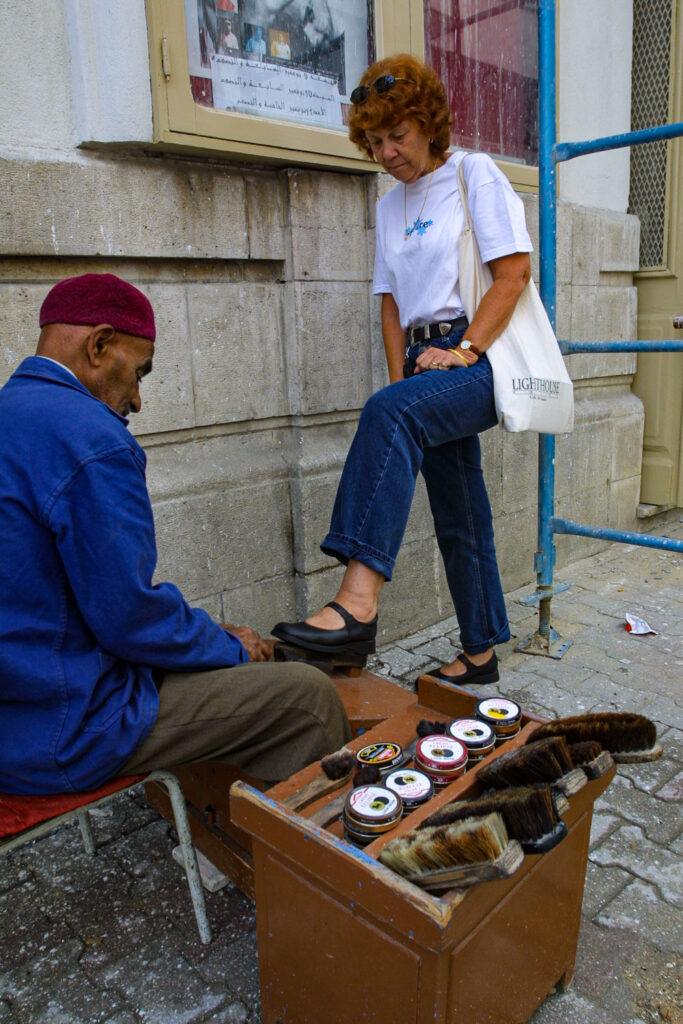
We find a restaurant and have our first “brik” – a local speciality that consists of an egg in a thin batter shell that can contain other ingredients (this one has potato) – and the obligatory couscous.
It is good to be here. We are looking forward to experiencing this culture.
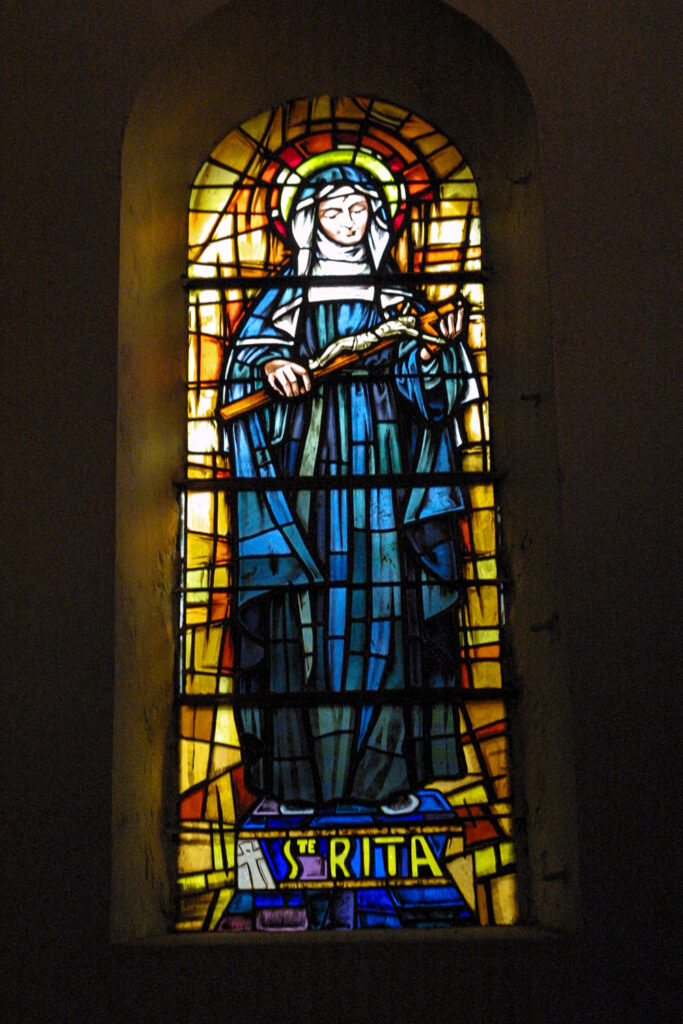
We were lucky enough to arrive in Tunis at the time of the Festival of the Medina – we attended a couple of the musical events in the municipal theatre. I have never sat through three hours of Arabic music before but I’m glad I did – at least once in my life!
We do some initial planning for the next few days. We want to go to the mosaic museum and then we’ll head south to Le Kef and Dougga (ancient Roman ruins).

A wonderful old train journey through spectacular gorges and desert scenery in the luxury of a train that once belonged to the Bey of Tunis.
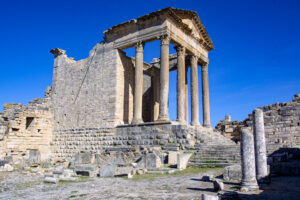
Dougga is one of the best of the ancient Roman town sites we have seen, a good rival to Ephesus in Turkey.
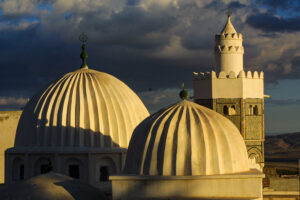
There are two things to see in Le Kef – the Kasbar on top of the hill and the Musée des Arts et Traditions Populaires.
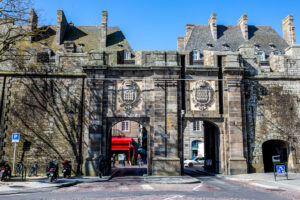
The walled town of Saint-Malo, once a haven for the pirates paid by the French government to harrass the English across the channel, now plays host to the thousands of tourists that flock there every summer.
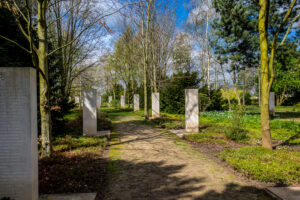
The Reporters Memorial in Bayeux is an avenue of white remembrance slabs of stone, each seven feet high, and each recording the names of reporters who were killed reporting conflict.
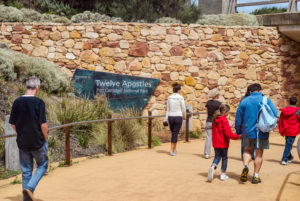
A major tourist drawcard along the Great Ocean Road in South West Victoria – but how many Apostles are there?